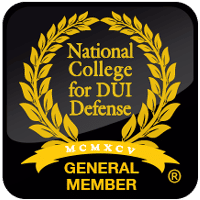Menu
What If I Lose My License But Continue to Drive (Driving with a Suspended Driver’s License)
September 5th, 2019

A person can lose their driver’s license for any number of reasons: maybe you were caught driving without insurance; maybe your license was suspended because you were charged with Driving While Under the Influence (DWUI); maybe you you received too many traffic tickets. Whatever the reason, driving with a revoked or suspended driver’s license is prohibited under WY Stat §31-7-134.
Here, we explore the differences between a suspended driver’s license and a revoked license, why it is a bad idea to drive if your license has been suspended or revoked, and what you can do to get your driver’s license back.
Driving Under Suspension
A suspended driver’s license means you are temporarily not permitted to drive.
A license suspension can be definite or indefinite.
A definite license suspension has a specific time period and ends at a specific time, and once you have paid the necessary fines and suspension termination fees.
An indefinite license suspension means that your driver’s license will remain suspended until you do something - usually paying an outstanding traffic ticket or overdue child support or taxes.
If you are caught driving with a suspended license you are susceptible to additional penalties, including fines and possible revocation of your license.
Driving With a Revoked Driver’s License
A license revocation means you have lost your privileges to drive and they will not be reinstated. In order to regain the ability to legally drive you will need approval from the Department of Motor Vehicles, pay any fines and penalties, and go through the licensing approval process again, which typically means re-taking the driver’s license exam.
Penalties for Driving with a Suspended Driver’s License
If you drive with a revoked or suspended driver’s license and are caught, you face penalties including fines and possible jail time. The fines and penalties increase in severity for each recurring offense.
A person convicted of driving with a license that is cancelled, suspended, or revoked faces fines of up to $750, and up to 6 months in jail.
If you are convicted of driving under the same suspension, cancellation, or revocation again, you face a mandatory minimum of 7 days in jail and a mandatory minimum fine of $200, with a maximum of 6 months in jail and a fine of $750.
Challenging a Suspended or Revoked Driver’s License
Courts generally recognize that, while driving is a privilege and not a right, it is a necessary part of many people’s lives. As such, the State generally will not arbitrarily deny a person the ability to have their license reinstated.
If you wish to challenge the validity of a license suspension or revocation, you must challenge it at the time of the suspension or revocation. If you wait and only challenge the basis for the license revocation or suspension after you’ve been caught the court is unlikely to grant you relief.
Just Criminal Law Can Help If You Are Facing a Suspended Driver’s License
The penalties for driving with a revoked, cancelled, or suspended driver’s license can be high, but the team of criminal defense professionals at Just Criminal Law can help.
If you are facing a potential suspended driver’s license , it is better to get an experienced criminal defense lawyer on board sooner rather than later. There are deadlines you may need to meet if you wish to challenge a driver’s license suspension, and you may need to appear in court. A lawyer may be able to challenge the basis of the suspension, minimize the severity of the suspension, and give you help with license reinstatement. Of course, a lawyer can also represent you in court if necessary.
Learn why our clients choose Just Criminal Law, read what other clients have to say, and contact our team of criminal defense professionals today.
Call Just Criminal Law at 607-686-6556, email inquiry@justcriminallaw.com, or complete our online form.
DISCLAIMER: The information contained in this article is offered for educational purposes only. This information is not offered as legal advice. A person accused of a crime should always consult with an attorney before making decisions that have legal consequences.





